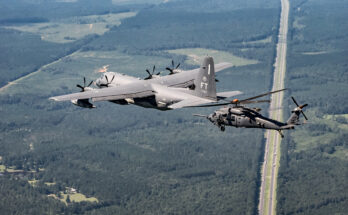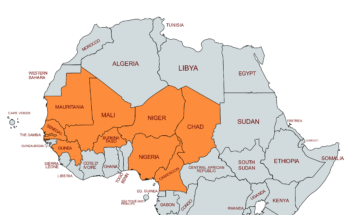Jarred awake from its 30-year slumber by events in Ukraine, Germany’s Chancellor Olaf Scholz announced in a special session of the Bundestag on February 27 that a massive shift in defense policy approach will now be undertaken. After years of neglect, low serviceability rates for key equipment and lack of adequate resourcing, the strengthening of the German Bundeswehr will become a government priority, thus marking a turning point in Germany’s modern history.
In a landmark speech to parliament, @Bundeskanzler Olaf Scholz announced a #Zeitenwende for Germany's foreign and security policy.
On this occasion, we revisit some of our German public opinion data on military spending, dealing with Russia, and EU defense. #MSCreport 🧵 1/6 pic.twitter.com/CrsugWd1kE
— Munich Security Conference (@MunSecConf) February 28, 2022
In his speech, Scholz vowed to bring the German defense budget up to, and above, 2 percent of national GDP, the NATO minimum requirement for annual expenditures on defense.
The latter issue has long served as a point of conflict between Germany and its NATO allies, particularly in light of its prior pledges at the 2014 NATO summit in Wales, which was then followed by a barrage of admonitions during the four-year term of former U.S. President Donald Trump.
The Bundeswehr revitalization effort will be underpinned by a proposed EUR100 billion ($113 billion) special defense fund that will finance major procurements of advanced platforms such as the joint European Future Combat Air System (FCAS). Another big-ticket purchase will most likely be the F-35 Lightning II stealth combat aircraft to fill a niche that will emerge with the retirement of the German Air Force’s fleet of Tornado fighter-bombers, which are declared to NATO as a Dual Capable Aircraft, meaning they may be tasked with the nuclear-delivery role utilizing the B61 nuclear gravity bomb.
The aim is to provide Germany with the military credibility not only to deter potential threats, but to underwrite a foreign policy long vested in soft power without the commensurate hard power. The long-practiced Ostpolitik dating back to former West German Chancellor Willy Brandt and utilized by Berlin when dealing with Vladimir Putin has now given way to Realpolitik.
Imbued with a pacifist culture that took deep root in West Germany in the period following the Second World War as society confronted the crimes of the former Nazi regime, German politicians have had little trouble in the years following the country’s reunification in 1990 in cutting the size of the armed forces and shifting public financial attention beyond the military and toward social welfare programs.
The German attitude against militarism became further embedded following the collapse of the Soviet Union (thereby eliminating the biggest existential threat to West Germany) and the reunification of Germany (placing greater financial burden on the Western half to develop and integrate the Eastern half of the reunited nation).
German politicians routinely put foreign and developmental aid on a level equal with defense investment as a means of overall security spending, arguing with their critics in Washington that Berlin’s comprehensive approach is as important to providing security in Europe as fielding a well-resourced military fighting edge.
But this false equivalence, as well as the long-held post-modern delusion that conventional war in Europe was a thing of the past, has been blown apart by Russia’s latest military action in Ukraine.
The mask has now slipped, and reality has crept in.
Going forward, much will have to take place in order for Germany to bring its military up to a higher standard. Better training, recruitment, and equipping of troops; the buildup of a robust logistical tail; an improvement in the serviceability rates of key platforms; and a shift in public attitude toward the military represent key requirements.
But the first step is admitting to the nation that there is a problem and that a concerted effort to reverse the situation must get underway. This essentially amounts to a cultural shift, not only in the body politic but in the public at large. Making this all the more striking is that the forces within the government pushing for a harder stance toward Vladimir Putin’s Russia and for renewed commitment to the military are coming from the left.
The proof, however, will ultimately be in the results. But for now, a shift in attitude toward the need for a strong military component as a key to foreign policy is taking place, and that is no small thing. Should this actually manifest in a stronger Bundeswehr and a more realistic approach to global security by Berlin, it won’t just represent a shift – it will represent a revolution. Or in Scholz’s words, a Zeitwende: the dawn of a new era.
Dan Darling is Forecast International’s director of military and defense markets. In this role, Dan oversees a team of analysts tasked with covering everything from budgeting to weapons systems to defense electronics and military aerospace. Additionally, for over 17 years Dan has, at various times, authored the International Military Markets reports for Europe, Eurasia, the Middle East and the Asia-Pacific region.
Dan's work has been cited in Defense News, Real Clear Defense, Asian Military Review, Al Jazeera, and Financial Express, among others, and he has also contributed commentary to The Diplomat, The National Interest and World Politics Review. He has been quoted in Arabian Business, the Financial Times, Flight International, The New York Times, Bloomberg and National Defense Magazine.
In addition, Dan has made guest appearances on the online radio show Midrats and on The Media Line, as well as The Red Line Podcast, plus media appearances on France 24 and World Is One News (WION).




